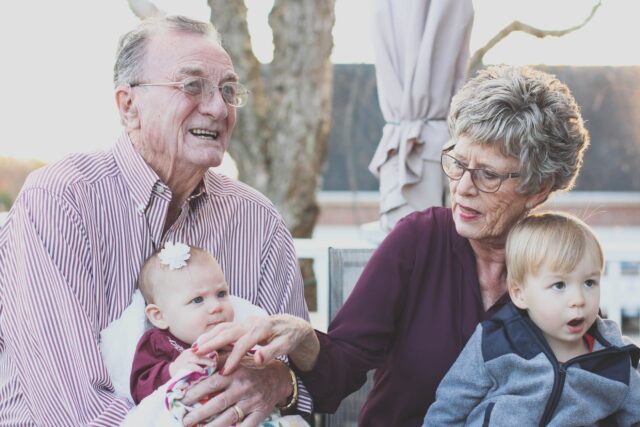
Travelling can have many purposes. If you are traveling back home, traveling is somehow inevitable. If the older person wishes to come home after spending some time abroad, it is only fair to grant them their wish. You can also travel for leisure. You may decide to take one trip to a place that the elder has always wanted to go. You can also travel to rekindle old memories of sites that you have been before.
Though traveling can achieve many good things, it is also a risk factor for an older person. It has to be done safely for it to achieve the intended purpose. The dos and don’ts are many. The dos and the don’ts somehow interact. It can happen if you are planning the trip alone. For example, you are advised to take a medical history and report seriously. If the person is currently battling a health problem, you may be advised to postpone travel for a while. However, such medical conditions could be a motivation for the elder to want to travel. So, you will have a choice to make before you can make any arrangements.
You can still make traveling safe despite the many challenges that lay ahead of you. The only thing that will be a challenge is to overcome each vulnerability. According to the experts at Arcare, you will have to prepare more and make considerable compromises. If your elder resides in a caregiver institution, it is always good to make the necessary arrangements with them. Here are the things that you will need to avoid. You should notice that avoiding one thing means arranging for safe travel for the chosen item.
1. Winter Travel

Winter is not the best time for the elderly to travel. You can travel to other locations that do not have a harsh winter. Tropical climates do not get extreme winter conditions. So, they can be beautiful destinations. However, you should not move to cold places in winter. Winter travel should be scrapped from your to-do list. Stick to summer and spring travel if you must.
Even if you are prepared for winter travel, it is always risky to travel with elders who most of the time have several health issues to deal with. Timing is everything when it comes to seasonality. Changing the weather drastically from the tropics to the temperate north could be too much for the elder. The vice versa is also not ideal. You will be better off traveling during comparable climatic and weather conditions. You can observe seasonality and genera weather before booking your travel tickets.
2. Outdoor Hikes in Rugged Terrain

Older people are particularly vulnerable. Their bones, ligaments, and joints are susceptible to physical strain. Hiking, especially in rugged terrain, should be discouraged at all times. This is because older people are prone to occasional loss of balance and falls. They can also trip, sprain, or even break their limbs in the process. The hiking places are many, and you don’t have to hike in a place where the elder will be at risk of injury or exposure.
Imagine using a walking stick or pushing a wheelchair on rough terrain. This is not ideal for the person. Remember, though elders know that they are not sharp, they still want to feel that they can do something. It is your responsibility to make sure that you do not expose them to risks and dangers. They may want to push themselves too hard, leading to disastrous consequences.
3. Camping Off the Grid
Camping is fun for most people. Unfortunately, aging can remove the fun part and add discomfort and risk to it. You can camp in places that are appropriately connected to highways, hospitals, and such utilities. Older people have many health needs; they may not survive a water shortage or cold meals. So, if you are planning your next camping with your elderly parents, you should stick to places that are near essential facilities. Also, ensure that you have fresh supplies for the duration of the camping.
4. Long-Distance Traveling

Older people are particularly affected by jet lag than younger people. Short distances and minimal travel will still give the person a perfect picnic or experience. Long haul flights can lead to blood clots and consequently major health problems. If the person must move, you should consider making the journey as comfortable and safe as possible. You can opt for connection flights that will accord the person some rest time between flights. Also, ensure that they have all their supportive care tools and equipment such as a wheelchair or walking sticks.
5. Discovering Too Late

Preparation is key to safe travel with elders. Any trip should include a careful checklist to minimize the risk of missing important things. Elders are advised to seek a medical opinion before they travel. Talking with the primary care physician is imperative. The physician will know your vulnerabilities. The doctor also knows how to avoid them. You will also notice that you may need to renew vaccinations if you are traveling out of the country, and such medical necessities.
Allowing yourself to discover too late about an important thing such as defective prescription drugs or insufficient immunity can be fatal. Elders have a low ability to cope with most diseases. If the person is not protected against commonly known diseases before traveling, it could lead to the person contracting the disease.
Every discovery relevant to the health of the person should be made before you pack your bags so that you pack everything that you need. Ensure that all medical supplies are enough to last you the entire trip. If your health insurance does not cover you abroad, you should consider additional health insurance. If possible, you can also get medical evacuation cover just in case the person gets medical complications that need attention from a local specialist.
If you can avoid those things that can pose a risk to the elder, you can make traveling a rewarding experience. Focus on what the elder will or can do. While you might not be limited, you will be in charge of the travel arrangements and plans. The elder must know that you have his or her best interests at heart. They must feel loved and cared for.







